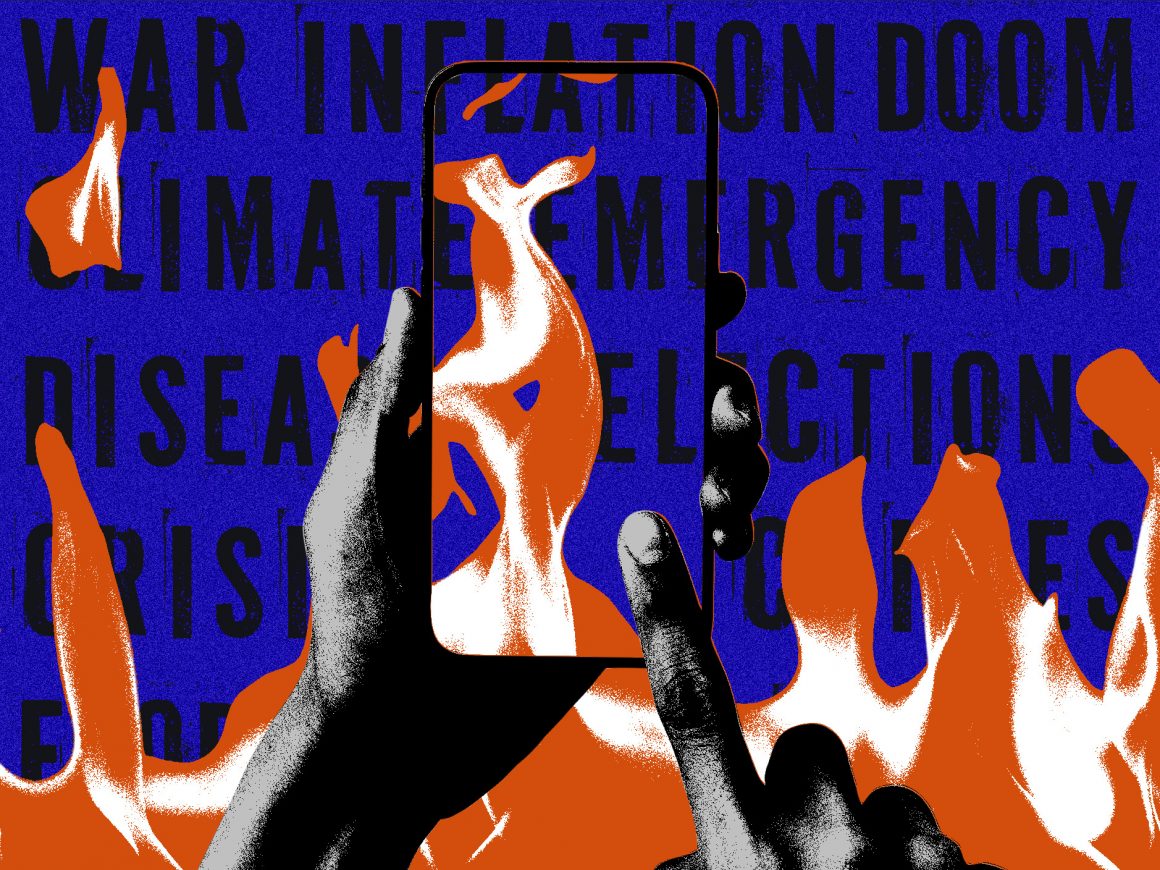
Rethinking “doomscrolling”: Why you shouldn’t look away from negative news
By Christian Lowry, January 25 2024—
The act of “doomscrolling”— the consumption of media with a negative tone or subject — has been receiving fresh attention in the popular media and even the scholarly literature. It is increasingly noted for its detrimental impacts on the mental health of those who regularly engage in it, and many authorities on mental health advise against it.
However, I believe that such condemnations of negative media consumption are ill-advised. The condemnation of negative outlets over the negative events that fill their pages is like shooting a messenger who brings bad news. Before shunning doomscrolling altogether, we should aim at the problems reported rather than the medium doing the reporting.
Certainly, many kinds of mass media are not only negative but downright toxic. There are mindless articles about the most irrelevant aspects of celebrities’ lives, intelligence-sapping conspiracy theories, and others promoting the outright dehumanization of others. In rethinking doomscrolling, I want to focus on media with tangible subject matter.
There are ways to discern whether negative articles are worth reading. For example, we should ask ourselves if the media in question prioritizes the voices of the privileged or the powerless. And that aside, does it rely more on facts or beliefs? Does it blame victims or elevate them? Does it teach people to work through crises together or atomize them by driving them apart? Does it promote rehabilitative and constructive policies, or advocate ruthless punishment and mass dehumanization at the first inconvenience? After all, nobody can’t take precautions against threats that they are unaware of, and the knowledge to be gained should be used to benefit those in harm’s way.
An individual case was provided by a survivor of a 2018 California wildfire who lost her mother and home in the disaster. She told PBS that “I started to smell smoke. I was definitely panicked. I thought it could all, like, burn. I told that to my mom, and she…didn’t want to listen to that negativity.” Her mother stayed behind while she evacuated alone, and within the day, the fire destroyed 95 per cent of the town where they both lived.
Aversions to negative news can also be collective. The world’s unconditional surrender to COVID-19 is among the most glaringly obvious examples. Hearing news about viral transmission, hospitalization, death and disability is undoubtedly depressing, but not as much as enduring them. In the eyes of most, everything is back to normal. Yet the desire to opt out of the pandemic while doing nothing to fix it is only driving a looming spiral of sickness, disability, death, and health system collapse. The solutions of masking with high-quality respirators, receiving periodic doses of vaccines, and improving air filtration are passing inconveniences, but relatively easy and vastly more comfortable than the eventual consequences of doing nothing.
In short, to be forewarned is to be forearmed. We’re used to saying, “I’m fine” even when the opposite is true. If we refuse to inform and protect ourselves to preserve our momentary peace of mind, we are much more likely to lose both our peace of body and mind much sooner than intended.
As anthropogenic climate change becomes more acute, an increasingly prevalent phenomenon is ecological grief, a condition marked by depression, anxiety, and grief triggered by such events as natural disasters, the extinction of endangered species, and pollution events.
Addressing the attitude of the American public to the Vietnam War, the prominent American social critic Noam Chomsky counselled us to acknowledge their role in permitting the abuses to continue, but added that one “one should be very careful not to let…guilt overcome the possibility of action.”
Now, five decades later, his warning is the same; “We have two choices. We can be pessimistic, give up and help ensure that the worst will happen. Or we can be optimistic, grasp the opportunities that surely exist and maybe help make the world a better place. Not much of a choice.”
This article is a part of our Opinions section and does not necessarily reflect the views of the Gauntlet editorial board.
